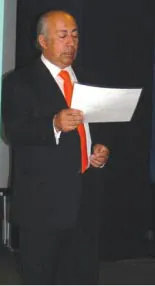A study sponsored by the American Glass Bead Manufacturers' Association reveals that "a growing number of imported glass bead products for highway markings exhibit high concentrations of heavy metals, including arsenic and lead."
April 11, 2012
Read time: 2 mins
RSSA study sponsored by the 2695 American Glass Bead Manufacturer's Association reveals that "a growing number of imported glass bead products for highway markings exhibit high concentrations of heavy metals, including arsenic and lead." The study, carried out by Texas A&M University's 2347 Texas Transportation Institute (TTI), was presented at the 2466 American Traffic Safety Services Association's (ATSSA) 41st annual convention in Phoenix, Arizona.
TTI's independent study showed that imported glass beads had extremely high levels of arsenic and lead and were susceptible to rapid leaching with exposure to water.
"The high levels of these heavy metal substances pose a hazard to highway worker safety and an environmental threat in terms of runoff into the soil, surface water, and drinking water," according to the association.
The trade group notes that glass beads manufactured by companies in emerging nations, particularly China, continue to use glass made from old glass-making techniques which require chemical modification resulting in products containing high levels of arsenic and lead.
In comparison, producers in the US and the EC use environmentally-friendly materials such as recycled flat glass to make their glass beads which do not contain high levels of arsenic and lead. The glass bead products are primarily used for highway safety markings, providing the light-reflective lane markings found on highways around the world.
TTI's independent study showed that imported glass beads had extremely high levels of arsenic and lead and were susceptible to rapid leaching with exposure to water.
"The high levels of these heavy metal substances pose a hazard to highway worker safety and an environmental threat in terms of runoff into the soil, surface water, and drinking water," according to the association.
The trade group notes that glass beads manufactured by companies in emerging nations, particularly China, continue to use glass made from old glass-making techniques which require chemical modification resulting in products containing high levels of arsenic and lead.
In comparison, producers in the US and the EC use environmentally-friendly materials such as recycled flat glass to make their glass beads which do not contain high levels of arsenic and lead. The glass bead products are primarily used for highway safety markings, providing the light-reflective lane markings found on highways around the world.







